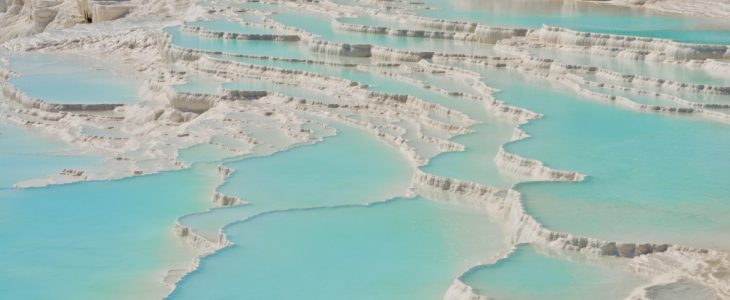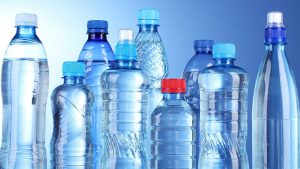¡Tu carrito está actualmente vacío!
Water Hardness Analysis

[et_pb_section fb_built=»1″ _builder_version=»4.4.3″][et_pb_row _builder_version=»4.4.3″][et_pb_column type=»4_4″ _builder_version=»4.4.3″][et_pb_text _builder_version=»4.4.4″ hover_enabled=»0″]
Contenidos de este post
The hardness of the water is one of the most famous parameters that are water. Surely this is because of the mention in some washing products in household appliances, along with the large part of the land is very rich in calcium; being calcareous or limestone soils.
As a large part of the water catchments come from groundwater, it is quite common in them that there is a high hardness.
But what is hardness? Let’s get to it.
What is water hardness?
By the expression of hard water or water with a high hardness we refer to water that contains a high amount of mineral salts. That is, it contains a large amount of salts, mainly calcium and magnesium. Depending on the circumstances of
water harvesting we can find waters richer in magnesium or richer in calcium.
It is normal for water to contain mineral salts, in fact human beings, we need these salts for our health.

What will determine a greater or lesser amount of mineral salts will be the geological formations through which the water passes. Both in the quantity and composition of the mineral salts present.
As for the amount of mineral salts: it will depend on whether the material through which the water has to pass is more or less resistant to erosion.
When the water has to pass through calcareous minerals, as happens in the area of Castilla y León, the water will be hard; it will be hard because in its path it precisely drags certain mineral components of the rocks.
On the other hand, when the water has to go through more resistant minerals, such as silicates, we will have a less hard water, that is, a soft water. Why? Silicates are very resistant materials, less soluble and less sensitive to erosion. An example of silicate is the granite itself that we all know. It is a very hard mineral, which does not scratch and resistant to erosion.
It is easy to see an example of this difference when we go on the road. When we cross areas where the calcareous soil is left in the air, we will see that the rocks are rounded by the erosion of water, and also of other elements.
However, when we cross mineral-rich areas of the silicate group, the rocks have edges; slightly rounded shapes. They have it precisely because they suffer very little erosion and / or are poorly soluble to water, so they do not drag components of them giving rise to soft waters.
How is water hardness measured?
The hardness of water, i.e. its concentration of mineral salts, is measured by French hydrometric degrees. Its abbreviation is ºH F. It is the most frequent form along with the expression as miliequivalents of CaCO concentration3
; CaCO 3
mg/l (or what is the same, milligrams of calcium carbonate in a liter of water).
When the water is hard and when it is soft
According to the criteria of the World Health Organization (WHO) we can classify water as follows, depending on its degree of hardness:
- Soft water: when the concentration of CACO3 is less than 60 mg/l.
- Moderately hard water: when the concentration of CaCO3 is greater than or equal to 61 mg/l but less than or equal to 120 mg/l.
- Hard water: when the concentration of CaCO3 is greater than or equal to 121 but less than or equal to 180 mg/l.
- Very hard water: provided that the concentration of CaCO3 is greater than 180 mg/l.
Why is it important to test the hardness of the water?
The hardness of the water must be measured by different implications, being beneficial the hard or soft water depending on the use that is going to be given. But it always has to be analyzed by a water analysis laboratory to avoid problems of poisoning, damage to crops or damage to machines.
Hard water to drink. Hardness of water in human consumption
Water for human consumption should be relatively low in mineral salts. That is, it is not recommended to drink very hard water regularly since it has been linked, according to many studies, with the generation of kidney stones and the appearance of other kidney problems.
In fact, if you have suffered from a kidney problem, you will see that it is usually common to recommend drinking waters of weak mineralization.

So much for the general scientific consensus. Then there are some lines of scientific research that are not fully accepted by the scientific community:
- The first of these is the one that defends that drinking hard water is beneficial for the reduction of cardiovascular risk. This line is relativized, since it is not so much because it is beneficial to drink hard water but it is harmful to drink very soft water. Why? Magnesium is closely linked to cardiovascular health, specifically with the elasticity of blood ducts and the contraction-relaxation of the heart. Therefore, the general and proven recommendation is not to drink extremely weak waters if the diet is poor in magnesium; while consuming such soft water is quite difficult.
- The consumption of water that have calcium present would be beneficial to maintain the alkalinity of our body; this alkaline situation has been clearly linked to people’s health, but the influence of water with calcium on the maintenance of alkalinity is not proven. That is why this recommendation should be rejected if we take into account that what there is consensus on is that hard water favors the appearance of kidney problems.
Hard water for use in machinery: the hardness of water in industrial uses
Water for industrial use is recommended to be band or very soft. As it happens for the use of machinery and appliances. Why? The mineral salts contained in the hard water are slowly deposited in the ducts and components with which they end up causing them to clog, saturate or even corrosion.
The resistors are one of the most affected components, as for example in the washing machine, where they are moderately known for all the damage it causes.
For certain industrial uses, the presence of any type of salt is not even recommended, but the use of pure water. Why? To avoid accidents or damage to machinery. Pure water is not a conductor of electricity.
All these recommendations are certainly for industrial use that does not involve incorporation into the food chain.
Given the amount involved in investments in industrial machinery, it is recommended that you always perform a water analysis, relying on an expert company in water analysis. It will protect your investment.

Hard or soft water for irrigation
For irrigation water, an intermediate level of hardness is recommended. Why?
- Very hard or hard water is harmful to irrigation systems since it plugs the ducts and the small parts that are usually in them. For example, water outlets for drip irrigation, outlets through sprinklers or even the long-term ducts themselves.
- Extremely soft water is not recommended for irrigation since it favors the demineration of mineral salts in the soil; which are necessary for optimal plant growth.
[/et_pb_text][/et_pb_column][/et_pb_row][/et_pb_section]


